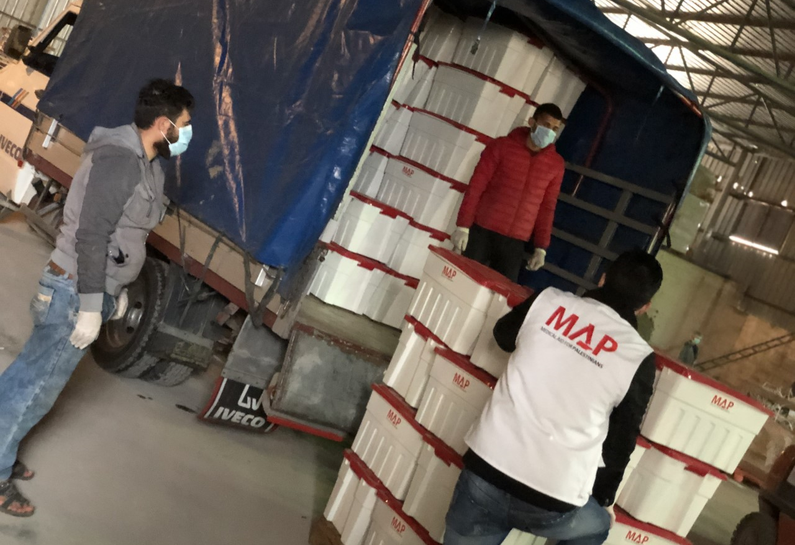Only immediate international support can avert catastrophe for Palestinians in Gaza and beyond

In one of the most densely populated places in the world, effective self-isolation is nearly impossible. With limited clean water, essential hygiene and infection control is a monumental challenge. Yet 13 years of illegal closure and blockade has left Gaza’s health system woefully unprepared for the challenge ahead should containment fail. Gaza lacks the infrastructure, essential equipment, drugs, supplies and human resources needed to treat a widespread outbreak of coronavirus.
We must, therefore, do all we can now to prevent further spread of the disease, and avoid the nightmare scenario of Gaza’s health system becoming totally overwhelmed.
Already, MAP’s team in Gaza have begun to respond. We have provided 200 hygiene kits to be used by 800-1,200 people in quarantine having returned to Gaza from countries where coronavirus has taken hold. As numbers of those in quarantine increase, so will our response.
Fikr Shalltoot, MAP’s Director of Programmes in Gaza, said: “As and when the number of cases rises, our priorities for procurement will change to the drugs and medical supplies needed to treat the critically ill, but for now it’s imperative to try to stem the tide and avert disaster.”
Beyond Gaza, in the West Bank and the Palestinian refugee camps in Lebanon, MAP is also prioritising infection prevention and control, and the provision of protective equipment for health workers. In Lebanon’s camps, MAP is working to slow transmission by procuring and distributing vital antiseptics and disinfectants such as chlorhexidine, ethyl alcohol, glutaraldehyde and povidone iodine.
Across Lebanon, the West Bank and Gaza, young children and pregnant and breastfeeding women are additionally vulnerable due to high rates of malnutrition. Older people are at higher risk of poor outcomes if they contract coronavirus due to poorly-controlled non-communicable diseases, high rates of smoking, and a lack of access to proper nursing care.
At all times, MAP’s response will be guided by priority lists provided by the World Health Organization and Ministries of Health, whilst our well-established local and regional procurement systems will ensure that essential items reach hospitals, primary healthcare centres and community partners as quickly as possible.
Dr Aimee Shalan, MAP’s CEO, said: “MAP is doing all it can to help Palestinian communities to prepare and respond for the challenges ahead, and I am incredibly proud of the swift action our teams in Gaza, the West Bank and Lebanon have taken to slow the disease and save lives. Meanwhile, many people in the UK, while facing fear and uncertainty at home, have already donated to support this essential work. To them we are truly grateful.”
“It is essential that UK government, while working hard to save lives at home, also helps ensure Palestinian health workers have the resources they need to do the same. We urge the international community to reach out in solidarity and support, and not abandon Palestinians to fight the disease alone.”
Related content


